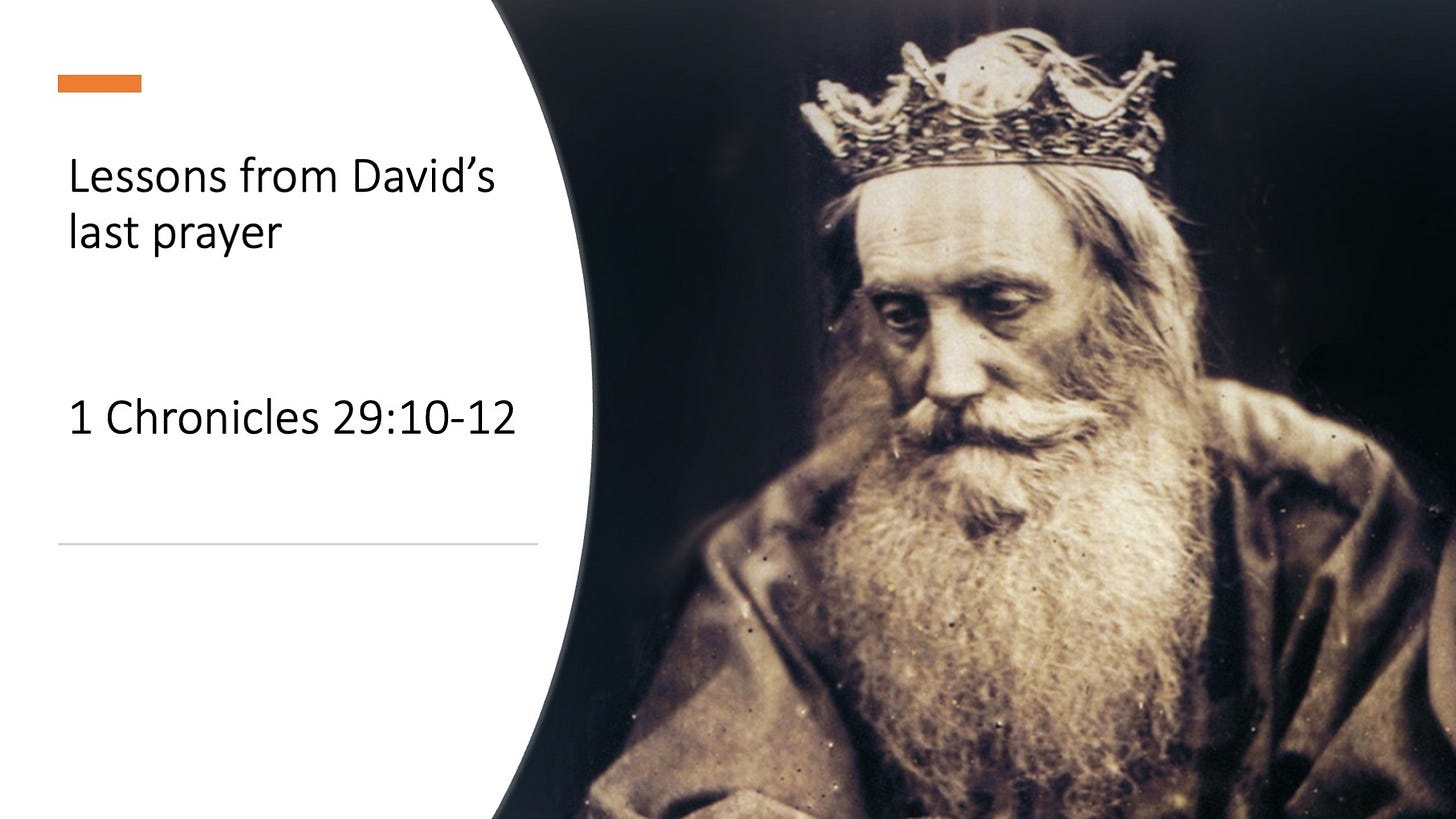Memorial of Saint Andrew Dung-Lac, Priest, and Companions, Martyrs
1 Chronicles 29:10-12
Our responsorial psalm comes from the Book of Chronicles and it is a thanksgiving prayer placed on the lips of David. Its author is unknown and the date of its composition is placed around 4th BC. At the centre of the Book is the Temple in Jerusalem with its sacrificial system. In his prayer of thanksgiving, David thanked the Lord for allowing him to amass all the necessary materials for building that temple. The reason he could not build it himself was the fact that he was a man of war and shed much blood. Therefore, he prayed that the Lord would help his son, Solomon, to build that temple (see 1 Chron 29:14-19).
The first part of the prayer that forms our responsorial psalm declares God's greatness. The Lord is eternal, all creation belongs to Him, He is above all that is, and He makes people rich and famous (see 1 Chron 29:10-12). This is a declaration of biblical faith. God's eternal existence - without beginning and end - is declared in the Book of Revelation with a statement that He is the One "who is and who was and who is to come" (Rev 1:8). The first pages of the Bible present God as the Creator of the universe and everything that exists in it (Gen 1:1-2:4). The entire biblical story, from Genesis to Revelation, presents Him as the Lord of history who has dominion over all. The personal story of David, chosen by God to be the king over Israel, proves the statement that the Lord gives riches and honour to whomever he chooses and makes anyone He wants great and strong.
This thanksgiving prayer of David is placed just before the transfer of power from David to Solomon and the subsequent death of David. In his last prayer, David teaches us the virtue of humility. Unlike the twenty-first century man, the biblical authors see human beings as totally dependent on God. Jesus said that without him we cannot do anything (see John 15:5) and Saint Paul said that he can do everything in the One who strengthens him (see Phil 4:13). This acknowledgement of our dependence on God is worth rediscovering. We have been tricked into believing that we are gods and there are no limits for us.
It is also worth pondering David’s action that preceded his prayer, namely gathering all the necessary material for his son Solomon to build the temple in Jerusalem. Like David, our leaders are men of war, unworthy and incapable of building a world that would reflect God’s kingdom. But, instead of destroying it with their shortsighted policies that place profit and might as right over the health of the planet and the prosperity of the people, they could at least enact the laws that would prevent the incoming disaster and allow future generations to build a better world.
David’s thanksgiving prayer reveals to us a man of prayer, piety, and humility who was well aware that everything he was able to achieve in life was God’s grace. We are invited to emulate these virtues in our lives. Only by giving God the honour and position in life he rightly deserves, we can hope for a future that assures the existence of the planet and humanity.




